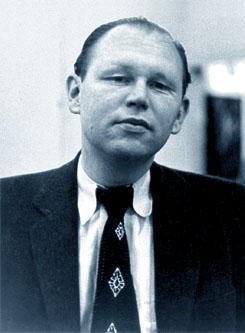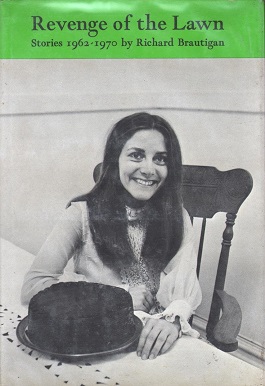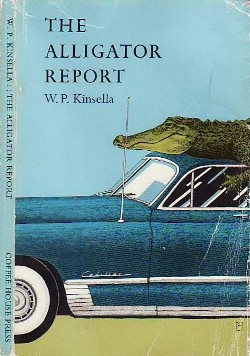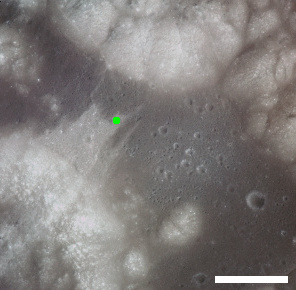
Captains Courageous: A Story of the Grand Banks is an 1897 novel by Rudyard Kipling that follows the adventures of fifteen-year-old Harvey Cheyne Jr., the spoiled son of a railroad tycoon, after he is saved from drowning by a Portuguese fisherman in the North Atlantic. The novel originally appeared as a serialisation in McClure's, beginning with the November 1896 edition with the last instalment appearing in May 1897. In that year, it was published in its entirety as a novel, first in the United States by Doubleday, and a month later in the United Kingdom by Macmillan. It is Kipling's only novel set entirely in North America. In 1900, Teddy Roosevelt extolled the book in his essay "What We Can Expect of the American Boy", praising Kipling for describing "in the liveliest way just what a boy should be and do".

In gay culture, bear is a term for men who are large, hairy, or both.

Richard Gary Brautigan was an American novelist, poet, and short story writer. A prolific writer, he wrote throughout his life and published ten novels, two collections of short stories, and four books of poetry. Brautigan's work has been published both in the United States and internationally throughout Europe, Japan, and China. He is best known for his novels Trout Fishing in America (1967), In Watermelon Sugar (1968), and The Abortion: An Historical Romance 1966 (1971).

Jack Spicer was an American poet often identified with the San Francisco Renaissance. In 2009, My Vocabulary Did This to Me: The Collected Poetry of Jack Spicer won the American Book Award for poetry. He spent most of his writing life in San Francisco.

The term San Francisco Renaissance is used as a global designation for a range of poetic activity centered on San Francisco, which brought it to prominence as a hub of the American poetry avant-garde in the 1950s. However, others felt this renaissance was a broader phenomenon and should be seen as also encompassing the visual and performing arts, philosophy, cross-cultural interests, and new social sensibilities.

A River Runs Through It and Other Stories is a semi-autobiographical collection of three stories by American author Norman Maclean (1902–1990) published in 1976. It was the first work of fiction published by the University of Chicago Press.

In Watermelon Sugar is an American postmodern post-apocalyptic novel by Richard Brautigan written in 1964 and published in 1968.

Washington Square is an American park in the North Beach district of San Francisco. It was established in 1847 and is one of the city's first parks. The park is bordered by sidewalk cafes and restaurants such as Mama's (restaurant), Park Tavern restaurant and the Liguria Bakery as well as the Sts. Peter and Paul Church.

Little Redfish Lake in central Idaho is in the Sawtooth National Recreation Area and Custer County.

Revenge of the Lawn: Stories 1962-1970 is a collection of 62 short stories written by the American author Richard Brautigan from 1962 to 1970. Like most of Brautigan's works, the stories are whimsical, simply themed, and often surreal. Many of the stories were originally published elsewhere. The book also contains two missing chapters from his work Trout Fishing in America, "Rembrandt Creek" and "Carthage Sink".

The Abortion: An Historical Romance 1966 is a novel by Richard Brautigan first published in 1971 by Simon & Schuster. In subsequent printings the title is often shortened to simply The Abortion.
Ronald William Loewinsohn was an American poet and novelist who was associated with the poetry of the San Francisco Renaissance since his inclusion in Donald Allen's 1960 poetry anthology, The New American Poetry 1945–1960. He was Professor Emeritus of English at the University of California, Berkeley.

A Confederate General from Big Sur is Richard Brautigan's first published novel, published in 1965.

The Alligator Report is a collection of short stories written by W. P. Kinsella and was published in 1985.

Kevin Killian was an American poet, author, editor, and playwright, primarily of LGBT literature. My Vocabulary Did This to Me: The Collected Poetry of Jack Spicer, which he co-edited with Peter Gizzi, won the American Book Award for Poetry in 2009.

Shorty is a feature on Earth's Moon, an impact crater in the Taurus–Littrow valley. Astronauts Eugene Cernan and Harrison Schmitt visited it in 1972, on the Apollo 17 mission. It is the location of the famous "orange soil", which geologists believe to be small bits of rapidly-cooled molten rock ejected in a lava fountain. It is about 110 meters in diameter and up to 14 m (15 yd) deep.
Shorty Crater is about 14 m deep. Based on our investigations at the site and later examination of photographs, the impact that formed it penetrated, in order, regolith on the avalanche deposit, the avalanche deposit, regolith on a basalt flow, a basalt flow overlying and protecting the orange and black glass layers, the orange and black glass layers, regolith on a second basalt flow, and, finally, the upper portion of that second flow. Orange and black glass clods and basalt boulders are spread throughout the ejecta blanket surrounding Shorty.

Benjamin Franklin – also known as the Benjamin Franklin Memorial, Benjamin Franklin Statue and Cogswell Historical Monument – is an outdoor sculpture in Washington Square, San Francisco, California.
"All Watched Over by Machines of Loving Grace" is a poem by Richard Brautigan first published in his 1967 collection of the same name, his fifth book of poetry. It presents an enthusiastic description of a technological utopia in which machines improve and protect the lives of humans. The poem has counterculture and hippie themes, influenced by Cold War-era technology. It has been interpreted both as utopian and as an ironic critique of the utopia it describes. It is Brautigan's most frequently reprinted poem.
This is a list of publications by Richard Brautigan (1935-1984), an American writer known for his poetry, novels, and short stories.
Knute Stiles was a union organizer, painter, collagist, art critic, poet and entrepreneur. He was born in Minnesota, the son of the state's first female physician. He went to the St. Paul Art School, and after World War II, attended Black Mountain College in North Carolina.














